The Christian way to watch TV
Perhaps you were among the 10 million viewers gripped by the David and Goliath drama Mr Bates vs The Post Office. Or the 7 million that enjoyed the nail-biting ...
Read
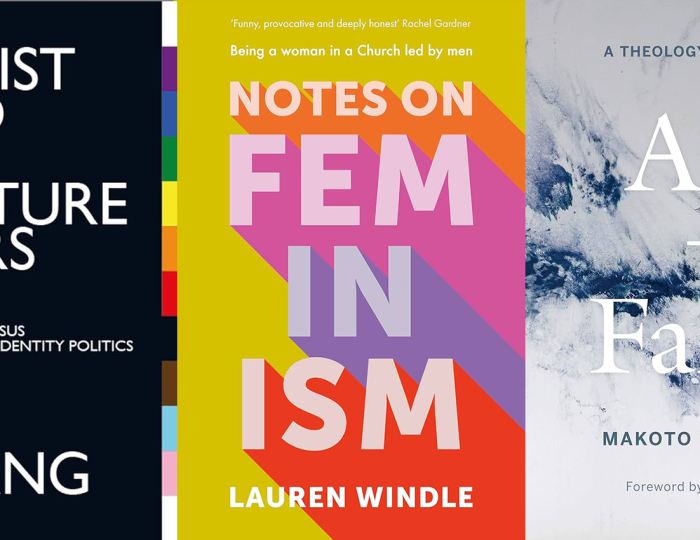
World Book Day is fast approaching. So, for the bookworms amongst you, we’ve compiled a list of cracking reads for you to peruse – and perhaps purchase and ponder. Whether you’d like to think about how your faith connects with and transforms your outlook on art, racial justice, or feminism, or would simply like to know how to hear God while you’re going about your everyday life, there’s something for you!
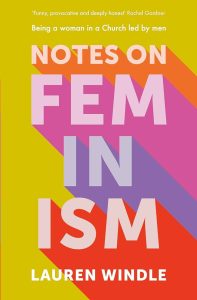
Lauren Windle, Notes on Feminism
Reviewed by Sophie Sanders, Marketing & Communications Lead
Christian feminism. An oxymoron? A heresy? A non-issue?
Well, in her brand-new book Notes on Feminism, Lauren Windle argues it’s none of these: it’s a topic that pretty much every woman is grappling with – and, as such, it needs to be talked about because the Bible relates to every aspect of life.
As you turn the pages of this book (and, if you’re anything like me, highlight and underline the gem statements you want to come back to), you’ll be confronted by the systemic biases and injustices that permeate our society and the church. You’ll be encouraged to broaden your understanding of ‘work’, both inside and outside the home, seeing all these roles and relationships as opportunities to join in God’s work. You’ll be challenged to speak up for truth and justice and mould the culture around you to be more kingdom-like, whether you’re a breastfeeding mum or a high-flying lawyer – or maybe a combination of the two. And you’ll be empowered to start conversations about hormones, porn, femininity, and sexual harassment, recognising that there’s no place for discrimination or abuse in the kingdom of God.
And don’t worry, there’s plenty in this for guys, too. It’s not chick lit, but rather a witty, relatable, and universally relevant read. After all, as Windle herself says, ‘It’s not about men versus women. It’s about Christians being for everyone. It’s about having heavenly eyes open to seeing injustice and God-given strength to stand up against it.’
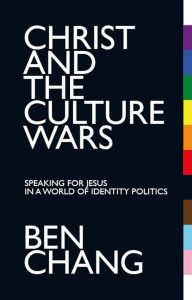
Ben Chang, Christ and the Culture Wars
Reviewed by Matt Jolley, Research & Implementation Manager
Despite what the name might suggest, Ben Chang’s Christ and the Culture Wars is no angry polemic. Rather, it’s a thoughtful analysis of how our society became fractured and a call for the church to wisely speak for Christ in this cultural moment.
Chang takes us through four areas of recent social upheaval – feminism, racial justice, gay pride, and trans rights – before bringing them all under the (in)famous banner of identity politics. Put simply, this is the story of historically oppressed groups waking up to their oppression and turning on the oppression systems and structures that have previously held them down. So far, so controversial.
All this begs the question, where does Christ fit in? Chang first outlines three problematic Christian responses: mirroring social justice movements by fighting for our own rights, arguing with proponents of identity politics, or simply ignoring the whole thing altogether. Instead, he advocates for a better way – or, indeed, a better story.
This is where Chang’s book comes into its own. He works through core tenets of identity politics – equality, the evil of oppression, liberty, justice – and demonstrates how they all find their home in the Christian story. Then, in turn, he shows how the Christian story is one of liberation from the oppression of sin and death.
This short book is an excellent primer on the rise of identity politics, and a helpful tool for Christians seeking to communicate their faith to the people around them in a way that is meaningful and attractive – whether that be in the workplace, classroom, or around the dinner table.
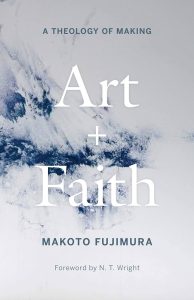
Makoto Fujimura, Art and Faith: A Theology of Making
Reviewed by Josh Hinton, Head of Communications
It’s not often you come across a book that deftly changes the way you think about God, purpose, and reality itself, but Mako Fujimura’s Art and Faith does exactly that. Based on decades of practice as both an artist and a theologian, it sets out his ‘theology of making’ – the idea that when we create beautiful things, we imitate our Creator God, join in with his redemptive purposes on Earth, and gain a deeper appreciation of our purpose as followers of Jesus.
It’s a short, elegantly written piece that packs a whole lot of insight into a small space. Across 10 chapters, it highlights how all too often we’re drawn into what Fujimura calls ‘plumbing theology’ – a reductive view of mission that’s all about fixing broken ‘pipes’, without asking what they’re there for in the first place. Creation groans, souls need saving, and so we go out to fix the problem – but why? What is God’s great aim in all this? When the redemption of all things is complete, what will it look like?
Fujimura writes that art gives us a glimpse of the answer: a world of abundance, of goodness and wonder that go beyond just repairing what’s broken. Crucially, when we make good things – whether artworks, relationships, communities, businesses or whatever – by God’s amazing grace those creative acts echo into the new creation. Like an architect who takes inspiration from his young son’s sandcastle for the design of a great mansion, God takes joy in the creative, redemptive work we do in his power in this world – and will carry it through into the new.
In short, this book explains why it’s worth investing in the redemption of God’s world – and why our God-given creativity is central to that pursuit.
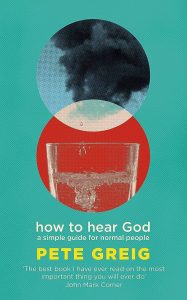
Pete Greig, How to hear God
Reviewed by Ennette Lainchbury, Emerging Generations Champion
Life felt pretty messy – it felt like everything was falling apart. Let me set the scene: my brother, who’d always been rock solid in his faith, was questioning whether it was all true, whilst a good friend had recently lost her friend to suicide. I wasn’t sure what to think, feel, or even pray.
Enter Pete Greig’s book How to Pray. Filled with honest confessions and written in a warm, engaging style, this book made what can often feel like a mysterious, intense, and complex topic feel easy and manageable. It’s for anyone and everyone and I’d say it’s a must-read. Put simply, it radically changed the way I now pray.
The book begins with the simple yet profound truth that to be human is to pray, before confronting our typically held assumptions about prayer head-on. Surprisingly, and even provocatively, Greig says the best way to start praying is to stop praying – to pause and surrender our own personal agendas. In the pages that follow and using the memorable and apt acronym PRAY (pause, rejoice, ask, yield), he weaves together anecdotal experiences and heaps of practical wisdom to unpack why and how we should pray.
If you’re looking to reboot, rediscover, or rejoice in your prayer life, this book really is a great place to start.